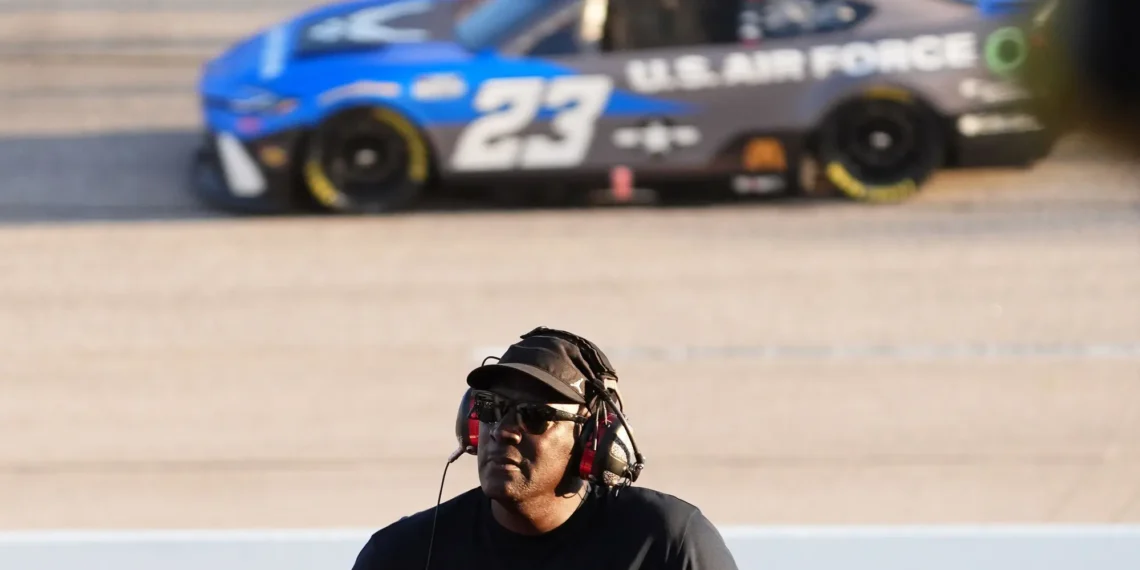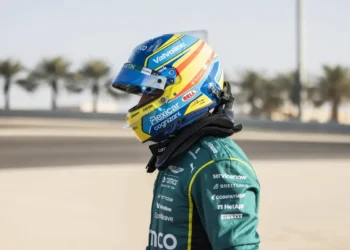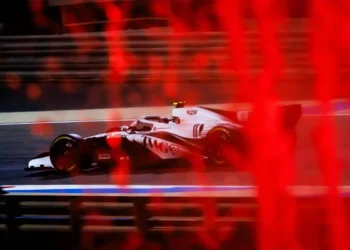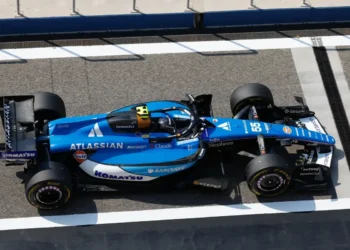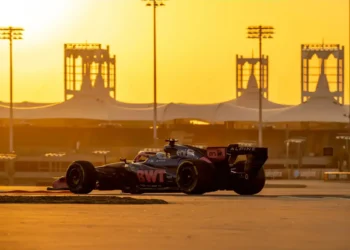In a stunning turn of events that has sent shockwaves through the racing world, Judge Kenneth D. Bell has decisively dismissed NASCAR’s counterclaims against 23XI Racing and Front Row Motorsports in a high-stakes antitrust battle. The ruling, which highlights the intricate dynamics of competition and negotiation in the NASCAR circuit, lays bare the realities of what constitutes competition and economic injury in the realm of racing.
Judge Bell’s ruling is a monumental blow to NASCAR’s assertions that it suffered competitive harm from the terms of the 2025 Charters, a claim the court deemed nothing more than a private economic setback for the organization. This pivotal finding underscores a crucial distinction: the judge made it clear that NASCAR’s complaints stem from its own financial expectations rather than any genuine injury to competition itself. “Simply put, if the supposed increased payments did not harm competition, they could not cause any antitrust injury to NASCAR,” he stated emphatically.
The Western District of North Carolina judge meticulously dissected NASCAR’s claims, revealing a lack of evidence to support the idea that the collective negotiations by the teams—alleged to be a “cartel” conspiracy—had any detrimental effect on the competitive landscape. In fact, Judge Bell pointed out that these negotiations actually fostered competition, allowing NASCAR to finalize agreements with an astonishing 13 out of 15 teams competing in the Cup Series. This fact alone challenges the very foundation of NASCAR’s argument, illuminating the reality that the teams’ collaborative efforts yielded beneficial results for all parties involved.
NASCAR’s failure to produce substantial evidence during the hearings only compounded its woes. When pressed by Judge Bell, NASCAR could not substantiate its claims of antitrust violations or demonstrate how joint negotiations adversely impacted its charter revenue. The ruling highlights NASCAR’s inability to articulate any concrete harm, with the judge noting that its own experts were unable to pin down an increase in payments directly linked to the alleged collusion.
Further complicating the case, NASCAR’s accusations of a conspiracy led by 23XI investor Curtis Polk to orchestrate a boycott of the 2023 Duel at Daytona fell flat when Judge Bell categorized the actions of team owners as mere negotiating tactics rather than a legitimate threat to competition. The judge concluded that the teams’ strategic decision to skip a meeting in April 2023 had no bearing on the final charter terms and did not impede NASCAR’s ability to compete in any meaningful way.
In his analysis, Judge Bell invoked the precedent set by the iconic 1979 Supreme Court case, Broadcast Music Inc. v CBS, Inc., which underscores the importance of maintaining competitive practices in collective negotiations. He articulated that the essence of antitrust law is to protect competition itself, and the evidence presented by NASCAR failed to establish any unreasonable restraint of trade.
The ruling has sparked a renewed fervor among stakeholders in the racing community, with 23XI Racing’s lead attorney, Jeffrey Kessler, expressing gratitude for the court’s thoughtful deliberation. “We are thankful for Judge Bell’s thoughtful consideration of the facts and the law, and his decision to grant Summary Judgment in my clients’ favor against the NASCAR counterclaim,” Kessler proclaimed. He emphasized their commitment to fostering a fair and equitable sport, promising to continue pushing for resolutions that benefit everyone involved—teams, drivers, employees, and fans alike.
On the other hand, NASCAR expressed its intention to appeal the decision, vowing to resolve the matter swiftly to refocus on the Championship weekend and the future of the sport. “Our priority remains resolving this matter quickly so all parties can focus on Championship weekend and continuing to grow the sport,” a NASCAR spokesperson stated, hinting at the ongoing tensions that could define the future of racing as various parties navigate this contentious landscape.
As this dramatic legal saga unfolds, the implications for NASCAR, its teams, and the future of competitive racing are profound. This ruling not only reshapes how negotiations are conducted within the sport but also sets a significant legal precedent for future disputes. The racing world will undoubtedly be watching closely as this saga continues to develop, eager to see how it will impact the very fabric of NASCAR’s competitive ecosystem.

